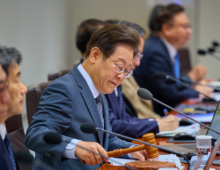The rise in foreign residents triggers a broader debate on multiculturalism and the need for improved societal cohesion
As South Korea confronts a declining birth rate and a growing number of foreign residents, the Ministry of Justice has unveiled the “Fourth Foreigner Policy Basic Plan.” The plan aims to attract foreign nationals to counter the decreasing population and to promote social integration between Koreans and the growing immigrant community. However, experts told Korea Pro that the government’s measures are neither effective nor practical.
More than 5% of the country’s population now consists of foreigners, marking South Korea’s transition into a multicultural, multi-ethnic nation. The justice ministry’s plan is a response to these demographic trends.
As South Korea confronts a declining birth rate and a growing number of foreign residents, the Ministry of Justice has unveiled the “Fourth Foreigner Policy Basic Plan.” The plan aims to attract foreign nationals to counter the decreasing population and to promote social integration between Koreans and the growing immigrant community. However, experts told Korea Pro that the government’s measures are neither effective nor practical.
More than 5% of the country’s population now consists of foreigners, marking South Korea’s transition into a multicultural, multi-ethnic nation. The justice ministry’s plan is a response to these demographic trends.
Get your
KoreaPro
subscription today!
Unlock article access by becoming a KOREA PRO member today!
Unlock your access
to all our features.
Standard Annual plan includes:
-
Receive full archive access, full suite of newsletter products
-
Month in Review via email and the KOREA PRO website
-
Exclusive invites and priority access to member events
-
One year of access to NK News and NK News podcast
There are three plans available:
Lite, Standard and
Premium.
Explore which would be
the best one for you.
Explore membership options
© Korea Risk Group. All rights reserved.
No part of this content may be reproduced, distributed, or used for
commercial purposes without prior written permission from Korea Risk
Group.












